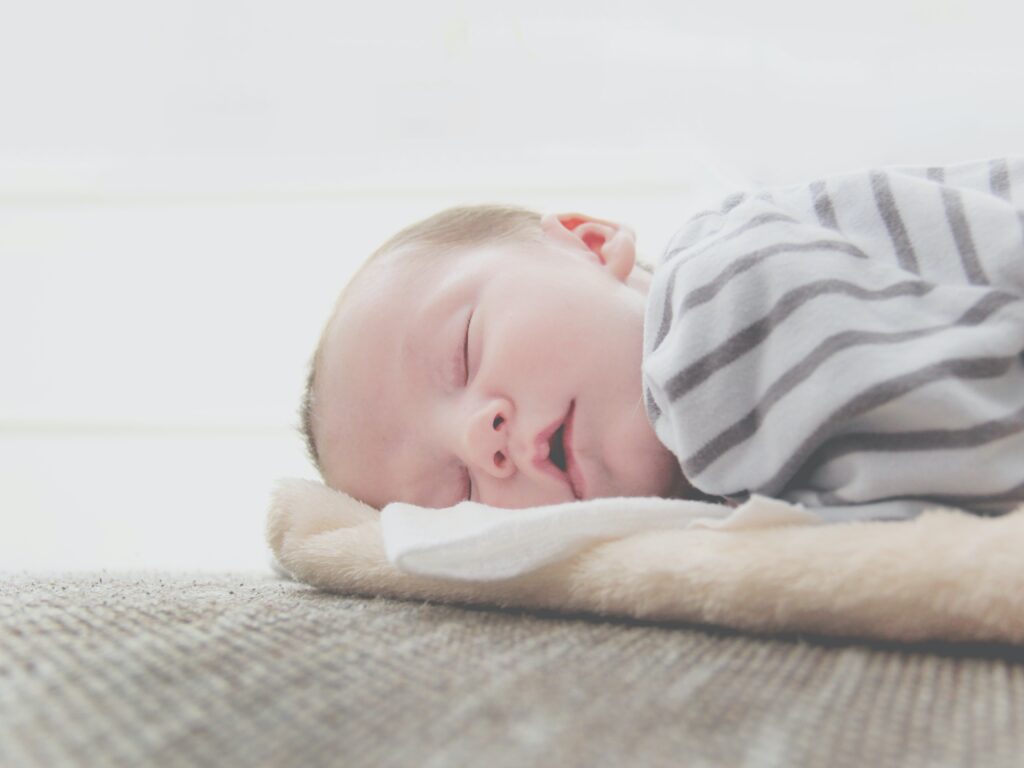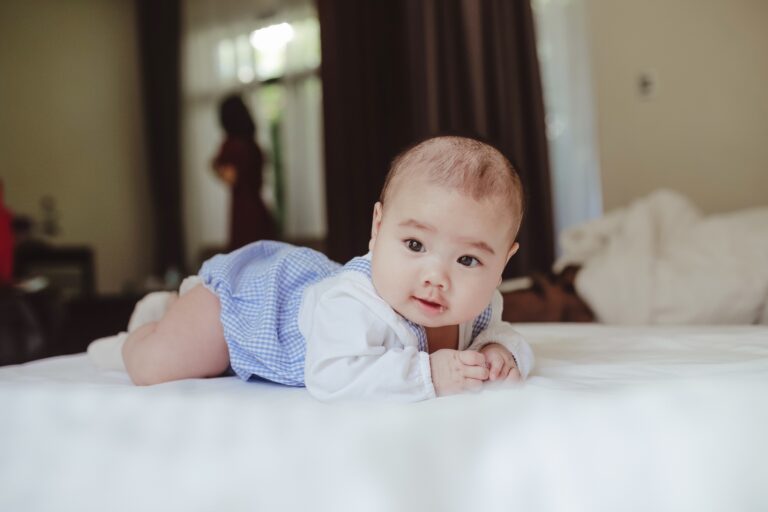As a new parent, nothing is more precious than your newborn baby. However, it can be worrisome when they experience hiccups frequently. Newborns are known for hiccupping often, which can cause concern among parents who may wonder if it’s normal or not. In this article, we will explore the causes of newborn hiccups and what you can do to help alleviate them.
For instance, imagine that you have just brought your little one home from the hospital and they start to hiccup almost constantly throughout the day. You begin to worry about their health and whether or not their constant hiccups are indicative of an underlying issue. This scenario is common among many new parents as they navigate through parenthood with a brand-new baby.
While newborn hiccups may seem concerning at first glance, rest assured that they are typically harmless and part of your baby’s development process. Understanding why newborns get hiccups, how long they last, and ways to ease them can provide peace of mind for both you and your child. So let’s dive into the world of newborn hiccups together.
How To Get Rid Of Newborn Hiccups
- Newborn hiccups can be frustrating for both the baby and the parents. If you’re a first-time parent, witnessing your little one’s hiccups might make you feel helpless. But don’t worry! There are simple ways to get rid of newborn hiccups quickly.
- Firstly, try burping your baby. Hiccups in newborns often occur due to air trapped in their stomachs while feeding. Gently pat or rub your infant’s back until they release a burp. This will help expel any excess air from their tummy, reducing the chances of them getting more hiccups.
- Another effective way to stop hiccups is by giving your baby small sips of water. It’s crucial to ensure that the water is at room temperature and not too cold or hot as it can upset your child’s stomach. A few sips of water between feedings should do the trick and keep hiccup episodes at bay.
Lastly, if all else fails, distract your baby with gentle rocking or humming sounds. Sometimes babies get distressed during bouts of hiccups which only prolongs the episode further. Distracting them with rhythmic motions like swaying or singing lullabies can soothe them into calmness and eventually stop the hiccups altogether.
Now that you know how to put an end to newborn hiccups let’s move on to another common hiccup issue – “newborn hiccups after feeding.”
Newborn Hiccups After Feeding
Newborn hiccups after feeding can be quite common and often nothing to worry about. Many babies experience hiccups, which are caused by a sudden contraction of the diaphragm muscle. These contractions result in an abrupt intake of air that then closes your baby’s vocal cords, producing the ‘hic’ sound.
Hiccups can occur when your baby feeds too quickly or swallows air during feeding. It is essential to ensure that your newborn is being fed slowly and burped frequently to reduce the chances of hiccups. Additionally, keep your baby upright for at least 30 minutes after each feed as it also helps prevent acid reflux.
If your baby experiences frequent hiccups, you may try gently rubbing their back or giving them a pacifier to suck on – both methods help relax the diaphragm muscles which cause hiccups. However, if these remedies do not work, there is no need to panic; most hiccup episodes last only a few minutes and resolve themselves without any intervention.
As much as we all wish our little ones could tell us what they’re feeling or experiencing fully, they cannot always communicate with words effectively. The good news is that newborns typically outgrow hiccupping within six months- while some may persist longer than others. In conclusion, remember that occasional bouts of hiccups are normal and should not worry parents unnecessarily.

How Long Do Newborn Hiccups Last
Have you ever wondered how long newborn hiccups last? It’s a common occurrence for infants to experience hiccups, and as a parent or caregiver, it can be concerning. But don’t worry; hiccuping is entirely normal in babies.
Coincidentally, the duration of these hiccups varies from each child. Usually, newborns get hiccups after feeding, but they tend to subside within 5-10 minutes on their own without any intervention. However, if your infant’s hiccups continue for longer than that or occur frequently throughout the day and night, it may be time to consult with your pediatrician.
It’s essential to note that while some parents find ways to ease their baby’s hiccups by giving them water or burping them again, there isn’t scientific evidence supporting this method. In general, we recommend waiting until the episodes pass naturally rather than trying any remedies out of concern. As always, talk with your doctor about any concerns regarding your child’s health before taking action.
Now that we’ve looked at how long newborn hiccups last let’s discuss what causes them after eating and how you can prevent them from happening too often.
Newborn Hiccups After Eating
If you’re a new parent, it’s normal to worry about every little thing when it comes to your newborn. One of the things that may cause concern is hiccups after eating. Rest assured that this is a common occurrence and nothing to be alarmed about. Newborns have immature digestive systems, which can sometimes lead to hiccups.
Why do babies get hiccups after eating? When a baby eats too fast or swallows air while feeding, their diaphragm muscles contract involuntarily, causing them to hiccup. This is because the stomach becomes distended with air, putting pressure on the diaphragm muscle. It’s also possible for hiccups to occur due to changes in temperature or excitement.
Here are some tips for dealing with newborn hiccups after eating:
- Burp your baby frequently during feedings
- Feed your baby at a slower pace
- Keep your baby upright for 20-30 minutes after feeding
Remember, newborn hiccups after eating are completely normal and usually harmless. As long as they aren’t causing any discomfort or interfering with sleep, there’s no need to worry. If you have concerns or notice other symptoms along with the hiccups, don’t hesitate to speak with your pediatrician. Trust yourself as a new parent and know that you’re doing great.
Conclusion
In conclusion, newborn hiccups can be a common occurrence for new parents to experience. Fortunately, there are various ways to help alleviate this discomfort for your little one. One effective method is burping your baby after feeding as it helps release any trapped air in their stomach.
If your baby continues to hiccup after feeding, don’t worry! Newborn hiccups typically last anywhere from a few minutes up to an hour and should subside on their own. However, if you notice that the hiccups last longer or occur more frequently than usual, it’s always best to consult with your pediatrician.
Remember, caring for a newborn can come with its challenges but learning how to soothe and comfort them during these moments will make all the difference. So whether it’s through gentle rocking or offering a pacifier, finding what works best for your baby will provide both of you with peace of mind and create a harmonious environment at home. As they say, “practice makes perfect,” so keep trying until you find the right rhythm that works for both you and your little bundle of joy.

